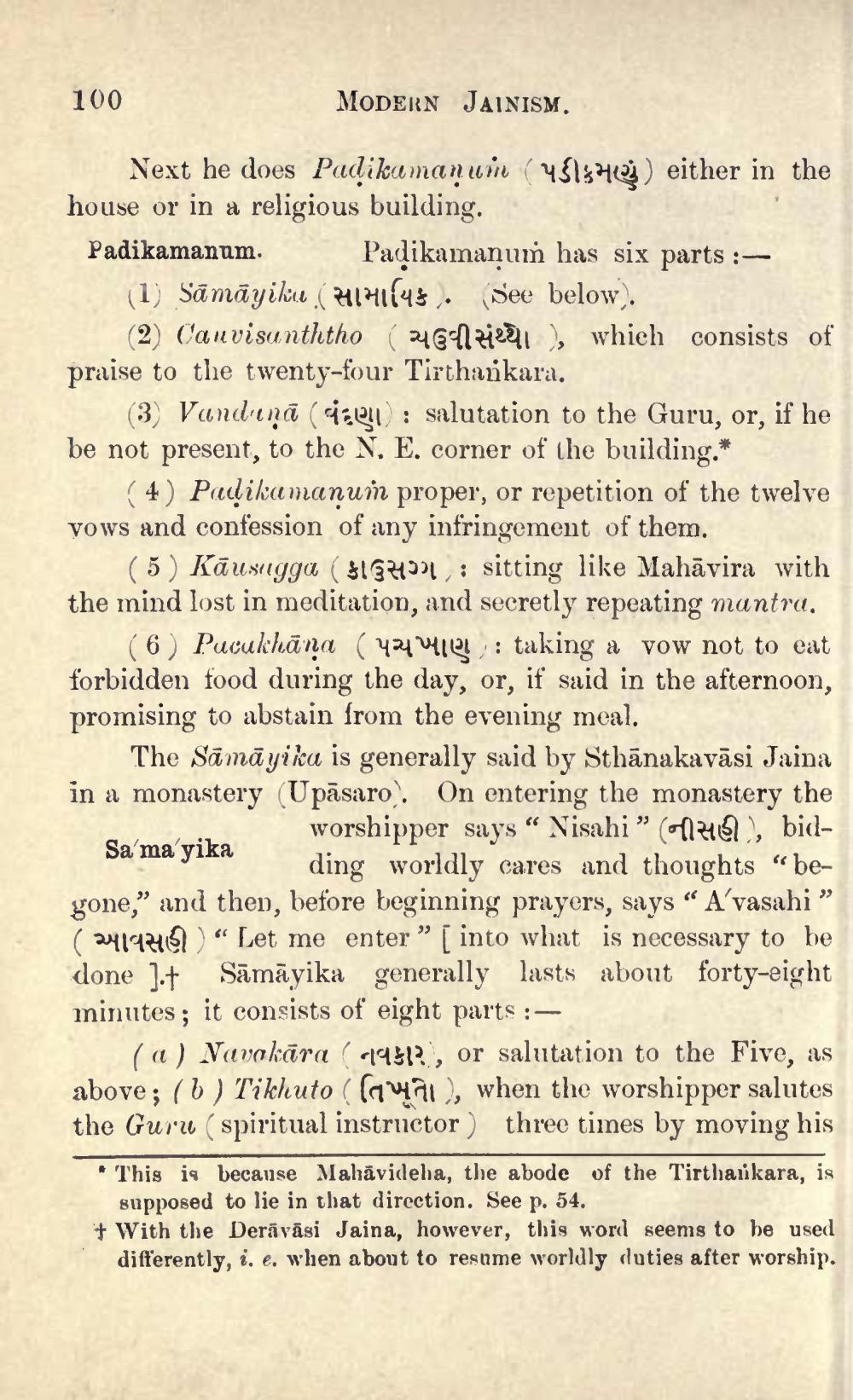________________
100
MODERN JAINISM.
Next he does Padikamanuin ( 4$154e) either in the house or in a religious building. Padikamanum. Padikamanum has six parts :
(1) Sāmāyikul (H141145. Wee below).
(2) Canvisunththo ( 346lziegu), which consists of praise to the twenty-four Tirthankara.
(3) Vand'ınā (iae) : salutation to the Guru, or, if he be not present, to the N, E. corner of the building. *
(4) Padikamanun proper, or repetition of the twelve vows and confession of any infringement of them.
(5) Kāusugga ( $1975), : sitting like Mahāvira with the mind lost in meditation, and secretly repeating mantra.
(6) Pucukhāna ( 424 vie : taking a vow not to eat forbidden food during the day, or, if said in the afternoon, promising to abstain from the evening meal.
The Sāmāyika is generally said by Sthānakavāsi Jaina in a monastery (Upāsaro. On entering the monastery the
worshipper says “ Nisahi” (MHO), bidSa'ma'yika
ding worldly cares and thoughts “begone," and then, before beginning prayers, says “A'vasahi " (241449 ) “Let me enter” [into what is necessary to be done ).+ Sāmāyika generally lasts about forty-eight minutes; it consists of eight parts:
(a) Navokāra (19512), or salutation to the Five, as above; ( 6 ) Tikhuto (7491), when the worshipper salutes the Guru (spiritual instructor three times by moving his . This is because Malāvideha, the abode of the Tirthaikara, is
supposed to lie in that direction. See p. 54. + With the Derāväsi Jaina, however, this word seems to be used
differently, i, e. when about to resume worldly duties after worship.




